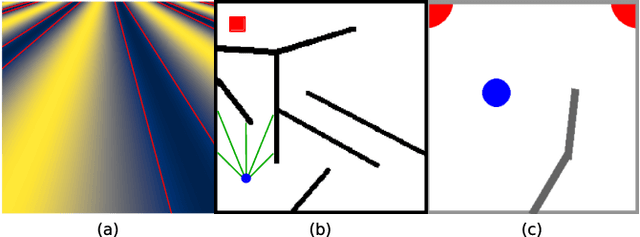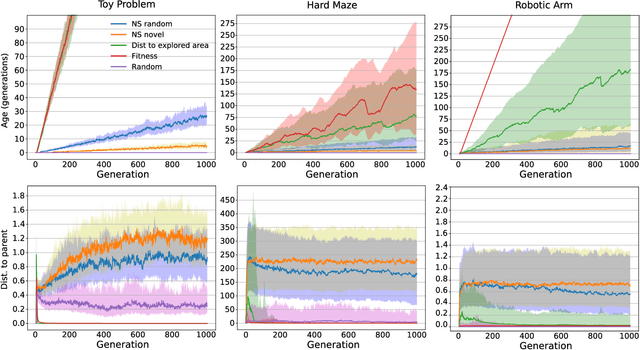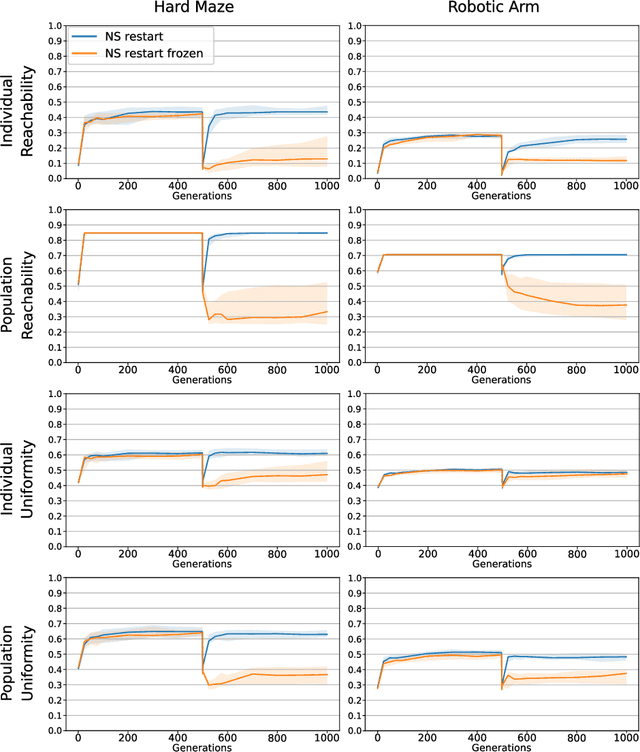Novelty Search makes Evolvability Inevitable
Paper and Code
May 13, 2020



Evolvability is an important feature that impacts the ability of evolutionary processes to find interesting novel solutions and to deal with changing conditions of the problem to solve. The estimation of evolvability is not straightforward and is generally too expensive to be directly used as selective pressure in the evolutionary process. Indirectly promoting evolvability as a side effect of other easier and faster to compute selection pressures would thus be advantageous. In an unbounded behavior space, it has already been shown that evolvable individuals naturally appear and tend to be selected as they are more likely to invade empty behavior niches. Evolvability is thus a natural byproduct of the search in this context. However, practical agents and environments often impose limits on the reach-able behavior space. How do these boundaries impact evolvability? In this context, can evolvability still be promoted without explicitly rewarding it? We show that Novelty Search implicitly creates a pressure for high evolvability even in bounded behavior spaces, and explore the reasons for such a behavior. More precisely we show that, throughout the search, the dynamic evaluation of novelty rewards individuals which are very mobile in the behavior space, which in turn promotes evolvability.
 Add to Chrome
Add to Chrome Add to Firefox
Add to Firefox Add to Edge
Add to Edge